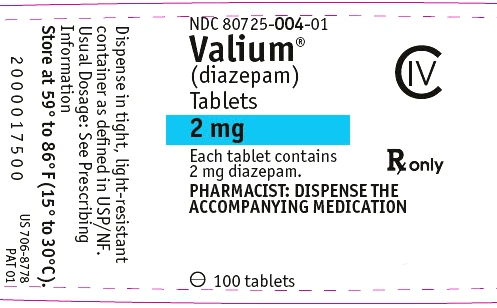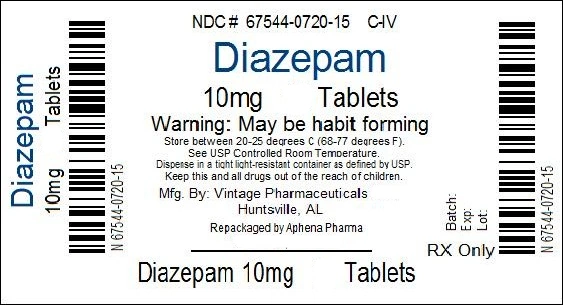






$229
MRP $329
(50% OFF, 90 pills Size : 2mg)
Buy Valium online in Sutherland, Iowa to manage anxiety disorders, muscle spasms, and seizures effectively. Valium, also known by its generic name Diazepam, is a trusted prescription medication that helps calm the brain and nerves for quick relief from tension, stress, and nervousness.
In Sutherland, Iowa, Valium is often recommended by healthcare professionals to treat anxiety, insomnia, panic attacks, and muscle-related discomfort. It may also be used before medical or dental procedures to promote relaxation.
Valium belongs to a class of medicines called benzodiazepines, which work by enhancing the effects of natural chemicals in the brain that help reduce overactivity in the nervous system. This results in a calming, soothing effect that helps patients regain mental balance and relaxation.
⚠️ Note: Always use Valium under medical supervision. Avoid combining it with alcohol or other sedatives, as it can cause extreme drowsiness or breathing problems. Follow your doctor’s dosage carefully to ensure safe and effective use.
City : Sutherland State : IowaValium (Diazepam) is a powerful prescription medicine used to treat anxiety disorders, muscle spasms, and seizures in Sutherland, Iowa. However, it can be habit-forming if misused. Always store your Valium medication in a secure place away from children, pets, and anyone with a history of substance misuse.
Do not share Valium with others, and never take it in higher doses or more frequently than prescribed by your healthcare provider.
The dosage of Valium varies depending on your medical condition and how your body responds to treatment. Always follow your doctor’s directions exactly.
Typical dosages include:
Before starting Valium in Sutherland, Iowa, tell your doctor if you have any existing medical conditions. You should not use Valium if you:
Inform your doctor if you have a history of any of the following:
Valium is effective for anxiety and muscle relaxation but may cause side effects. Common symptoms include drowsiness, tiredness, and loss of coordination. Avoid driving or operating heavy machinery until you know how the medicine affects you.
Serious side effects can occur in rare cases. Seek emergency medical help if you experience:
⚠️ Long-term use may cause dependence or withdrawal symptoms. Always follow your doctor’s instructions and do not stop Valium suddenly without medical advice.
Take Valium (Diazepam) exactly as prescribed by your healthcare provider in Sutherland, Iowa. Follow all directions on your prescription label carefully — do not take this medicine in larger or smaller amounts or for longer than recommended.
Valium is usually taken 1 to 4 times daily, depending on your medical condition and doctor’s recommendation. If you’re using the liquid form, always measure it with the provided dosing syringe to ensure accuracy.
Do not suddenly stop using Valium after long-term use, as it can cause serious withdrawal symptoms. Ask your doctor how to safely taper off the medication.
Store Valium at room temperature away from moisture, heat, and direct sunlight. Keep your medication in a secure place — Valium is a controlled substance and may be misused by others. Be aware of any missing tablets and never share your prescription with anyone.
Dispose of any expired or unused Valium properly. Always keep the medicine out of reach of children and pets.
Valium can interact with several other drugs, increasing the risk of serious side effects such as drowsiness, slowed breathing, or even coma. Always inform your healthcare provider in Sutherland, Iowa about all medications you are currently taking, including prescription, over-the-counter, herbal, and vitamin supplements.
Common drug interactions include:
Combining these substances can amplify sedative effects and cause dangerous respiratory depression or loss of consciousness. Your doctor may adjust your dosage or monitor your treatment more closely.
If you miss a dose, take it as soon as you remember. If it’s almost time for your next dose, skip the missed one. Do not double up on doses to make up for a missed pill.
If you suspect an overdose, seek emergency medical help immediately. An overdose of Valium can be life-threatening — especially when combined with alcohol, opioids, or other sedatives. Symptoms of overdose may include extreme drowsiness, muscle weakness, confusion, or fainting.
Avoid drinking alcohol while taking Valium, as it increases the risk of dangerous side effects. This medication may impair your thinking, coordination, and alertness — avoid driving or operating heavy machinery until you understand how it affects you. Use caution to prevent falls or injuries, especially among older adults.
Valium (Diazepam) provides effective relief for anxiety, muscle spasms, and seizure disorders when used responsibly. Residents of Sutherland, Iowa should take this medication only under medical supervision and follow all prescribed guidelines to ensure safety and maximize benefits.
Before starting Valium (Diazepam) in Sutherland, Iowa, share your complete medical history with your doctor or healthcare provider. This ensures the medication is both safe and effective for your condition. You should inform your doctor if you have ever experienced or are currently suffering from any of the following:
Additionally, inform your doctor if you are pregnant, trying to conceive, or breastfeeding. Valium can harm an unborn baby and may pass into breast milk, potentially causing sedation or feeding problems in a nursing infant.
Providing complete and accurate health details helps your doctor in Sutherland, Iowa determine whether Valium is suitable for you, adjust dosages correctly, and reduce the risk of side effects.
While taking Valium, monitor your symptoms closely and report any unusual side effects to your healthcare provider immediately. Pay special attention to:
Avoid alcohol and any sedative medications while using Valium, as combining them can amplify drowsiness and breathing problems. Do not drive, operate heavy machinery, or perform high-attention tasks until you are sure how this medication affects your alertness.
Always keep regular follow-up appointments with your healthcare provider in Sutherland, Iowa to evaluate your progress, adjust your dosage, and manage side effects if they occur.
Valium (Diazepam) can provide significant relief from anxiety, seizures, and muscle spasms when used responsibly. If you live in Sutherland, Iowa, and are prescribed Valium, always take it under medical supervision, follow dosage recommendations strictly, and maintain open communication with your healthcare provider for safe and effective treatment.